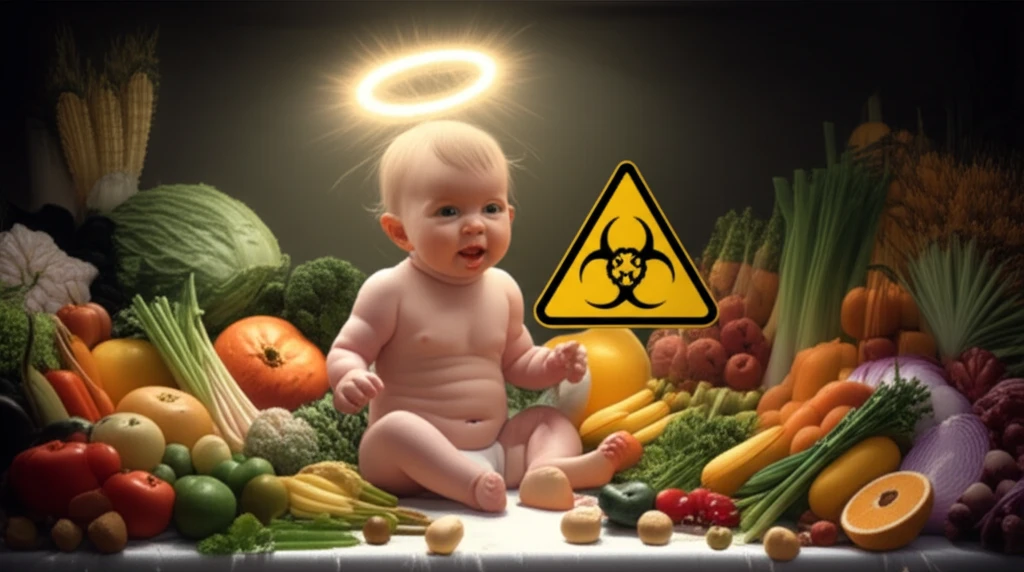
Hidden Dangers in Baby Food: How Aflatoxins Threaten Your Child's Health
"New research reveals alarming levels of toxins in complementary foods, highlighting the need for better management to protect our children."
As parents, we strive to provide the best for our children, especially when it comes to their health and nutrition. We meticulously select baby food, believing it to be a safe and nourishing choice for our little ones. However, a recent study has brought to light a hidden threat: aflatoxins. These dangerous toxins, often found in crops like peanuts and maize, have been detected in complementary foods given to infants and young children, raising serious concerns about their potential impact on child health.
This isn't just a matter of food safety; it's about understanding the long-term effects of exposure to these toxins during a crucial period of development. The study, focusing on complementary foods, provides important insights into the potential dangers, and underscores the necessity for better management and awareness to protect our children from this hidden health hazard. Let's examine the findings and what we can do to protect our children.
This article draws from an in-depth research article to inform parents and caregivers about this hidden risk. The article emphasizes how essential it is for families to stay informed and take proactive measures, ensuring the health and well-being of their children.
The Aflatoxin Threat: What Parents Need to Know

Aflatoxins are toxic compounds produced by certain molds that grow on crops like peanuts, corn, and other grains. These molds thrive in warm, humid conditions, making the contamination of food products a significant concern in many parts of the world. When these crops are used to create baby food, the toxins can find their way into your child's diet, posing a serious health risk. The study found significant levels of aflatoxins in home-made complementary flours, indicating that the problem is widespread and requires immediate attention.
- Impaired Growth: Aflatoxins are linked to stunted growth in children.
- Liver Damage: The liver is particularly vulnerable to the effects of aflatoxins.
- Weakened Immune System: Exposure can compromise the immune system, making children more susceptible to illnesses.
- Long-Term Health Risks: Chronic exposure is associated with increased risk of chronic diseases.
Empowering Parents: Steps to Protect Your Child
This study offers a crucial wake-up call to parents and caregivers, stressing the need for vigilance and proactive measures. By staying informed, selecting baby food carefully, and supporting initiatives to reduce contamination, we can protect our children from the risks associated with aflatoxins. Remember, ensuring the health and safety of our children is a continuous journey, and every informed decision is a step toward a healthier future.
